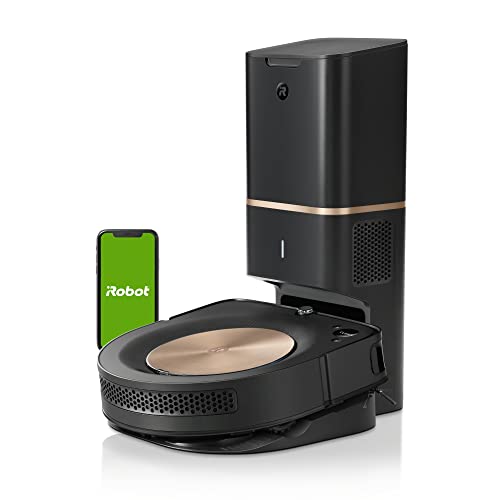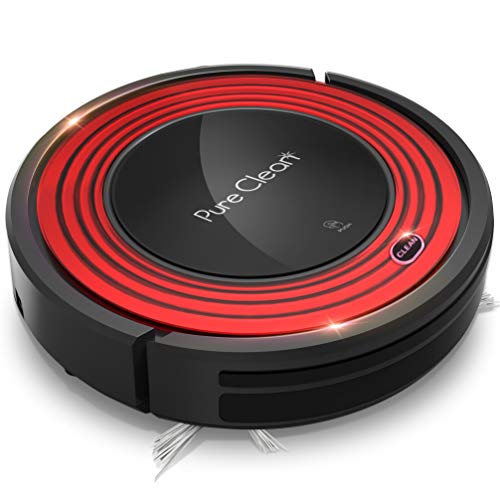How Do I Explain Robot Vacuum And Mops To A Five-Year-Old
페이지 정보
작성자 Thanh Earle 댓글 0건 조회 776회 작성일 24-09-03 19:38본문
 Robot Vacuum and Mop - Hands-Free Cleaning Made Easy
Robot Vacuum and Mop - Hands-Free Cleaning Made Easy Consider this 2-in-1 cleaner if you're looking for one that can do all. It is able to clean medium and low-pile carpets for floors and also allows you to create no-mop areas and adjust cleaning schedules and modes of operation.
Consider this 2-in-1 cleaner if you're looking for one that can do all. It is able to clean medium and low-pile carpets for floors and also allows you to create no-mop areas and adjust cleaning schedules and modes of operation.Look for models with sensors that can detect the type of floor they are placed on, empty dirt and water from their own tanks, and stay clear of obstacles like phone chargers, pet hair, and socks. Find out how easy it is to install.
Self-Emptying
People are always looking for ways of reducing their workload as the world becomes more hectic and chaotic. Robot vacuums and mop are among the top tools on the market to aid in that. They can clean dirt, pet hair and crumbs while also cleaning floors. You can use your smartphone or voice assistants to control these machines using pre-programmed routines and specific room designations.
One of the most efficient time-savers both for users and machines is self-emptying models that don't need you to empty the dustbin after every cleaning cycle. This will save you time and effort and lets your robot clean your whole house more often, and not have to be concerned about running out of room in the bin before it's time for refills.
If you're considering a self-emptying model ensure that the external dust bin is big enough for your home size and frequency of cleaning, since it will be filled quickly if you opt to run it frequently. Also, you'll want to ensure that the system does not overfill and create obstructions that prevent the robot from being able to empty it fully.
The self-emptying feature works by taking the dust bin inside the machine and placing it in an additional storage containeryou can think of it as the bag that comes with the traditional vacuum cleaner- that can be emptied every two or three times. These robots are worth the extra cost since they have this premium feature.
To perform the mopping function Some models wash and dry their own dirty pads after every use. Some models have a dock that takes care of the entire job and you just need to empty it twice or once a year.
Check out this Roborock robot which is highly rated for its ability to perform both tasks. The RockDock S7 MaxV Ultra is an upright vacuum and mop that includes an dock that takes care of all maintenance. You don't need to empty the tanks manually, and you can schedule the unit or even start it using the on-device controls and voice assistants like Alexa and Google Assistant. It even has boundaries to keep it out of specific areas if you don't want it roaming around your entire home.
Object Avoidance
The best robot vacuum for the money robot vacuums have objects avoidance. This helps the appliance navigate around furniture legs and stray toys. This is a must-have for families with children and pets, as if the robot bumps into these objects, it could jam or break it.
The technology is typically based around a single sensor or a pair of sensors that are located near the bumpers of the vacuum cleaner that absorb shock. When the sensors detect a blockage the robot will then change direction and turn until it locates an open path. Certain models employ lidar technology which makes use of lasers to measure the distance between the robot and nearby objects. This enables it to create an image of its surroundings in real-time, and move more efficiently around your home.
Other robovacs, that do not use lidar technology, are made to detect obstacles using cameras that utilize a binocular or monocular sight. These systems are most efficient in bright lighting, but they do not perform as well in low-light conditions or with objects that have the same color as the surrounding environment. For instance, a robot with monocular vision may have difficulty seeing shoes or cables.
Some robot vacuums are more sophisticated than others, and they can perform more than just avoid obstacles. This is why they are also called smart vacuums. They can create a virtual map of your home's layout, and let you send them to specific rooms or areas using the application. They can even remember where they've already cleaned. This will cut down on cleaning time and ensure that your home is well cleaned.
The most modern robotic vacuums and mops can switch between different types of flooring. Certain robot vacuums and mops automatically detect the flooring type in a specific room and adjust suction and brush functions accordingly. Some even allow switching from carpet to hard flooring without losing suction power.
All smart vacuums and mop should have some form of obstacle avoidance, irrespective of the type of flooring. These devices ensure that appliances aren't caught in the wires which could cause them to lose suction. Some models have a list of objects they know about, such as socks, shoes and pet waste. The most effective models can identify these objects and calculate their dimensions, distance, and how to avoid them without running into it.
Floor Mapping
The majority of robot vacuums are fitted with sensors that detect objects. If a piece of furniture like furniture legs or a random tossed toy -- gets in the way it triggers a sensor which tells the vacuum turn away from the obstacle and toward a cleaner part of the floor vacuum robot. The sensors aren't completely foolproof. The Roomba 900 Series, for instance, was able to stay clear of our shoeslaces and headphones but it did end up sucking up cables. This is why we suggest removing objects from the robot's path before running through your home's rooms.
A lot of the vacuums and mopping robots we have tested in The Spruce include an app. It can be used to save maps, make schedules, select cleaning modes, and monitor your robot's performance. The most effective apps are simple to set up and easy to use, and some even offer various features that help your robot be more efficient.
App integration also lets you keep track of your robot's water tank as well as dirty pads. You should look for models that let you determine the level of the water tank and the amount of moisture on the pad and when the pad needs to be changed. You can even create a schedule that will automatically change the pad when it's wet in order to avoid mildewy smells from growing on the old one.
Mapping is a crucial feature for robot vacuums that operate on different floors within a house. It lets the robots create a map of your house that they can use to navigate and clean different areas. Certain robots make use of sensors and artificial intelligence to create these maps. For instance, iRobot's Vacuuming Mapping utilizes multiple sensors to scan a room including walls and corners, to determine how far the robot can travel before it hits furniture or bumps into obstacles.
Other robots, such as the Ecovacs Deebot X1 -OMNI or the Roborock S7 MaxV Ultra use optical sensors to determine the wall's position. They then employ an algorithm to map or follow the edges of furniture to determine the best vacuuming and mopping robot budget robot vacuum mop (http://www.annunciogratis.net) route for each room.
Mopping Sets
Robot vacuums operate on autopilot, with you doing nothing more than hitting an icon on a remote or in an app to have them clean a room. You can also set up schedules using voice commands. This is a fantastic feature for busy families who want their robot vacuums to perform their chores at the exact same time every day.
Most robot mops use microfibre pads that are soaked with water tanks within their base. Many are able to be used repeatedly before needing to clean or replace the pad. Models that allow for adjustment of the flow of water to suit different floors are the best robot vacuum and mop for vinyl plank floors. Also, you should take into consideration the dimensions of the tank, whether you can change the cleaning mode between wet and dry mopping and how long a robot mop will last on one charge.
The best cheap robot vacuum mop robot mops are able to quickly and efficiently clean hard floors, and get under tables and around obstacles that you'd have difficulty doing manually. Although they're not perfect, they do have trouble climbing stairs or maneuvering ledges between rooms. They also leave behind streaks of wood and tiles, especially in sunlight.
A robot vacuum and mop that is of high-quality should also come with a carpet sensor. This is crucial if your home has different types of flooring and the robot will not be able to get caught in or over rugs. It should be able to recognize other objects which may hinder cleaning, such as cords and tassels. This will enable you to designate "no-go zones" that will prevent the robot from getting into these areas.
Most of the robot cleaners we test in the CHOICE lab have smart app integration that lets you save maps of your home as well as schedule cleaning times and choose cleaning modes. You'll also be able to create virtual barriers to prevent your robot from certain areas, and get (sometimes amusing) warnings of errors if the device runs into problems. Certain apps are simpler to use than others, while others offer live webcams to monitor your robot.
댓글목록
등록된 댓글이 없습니다.